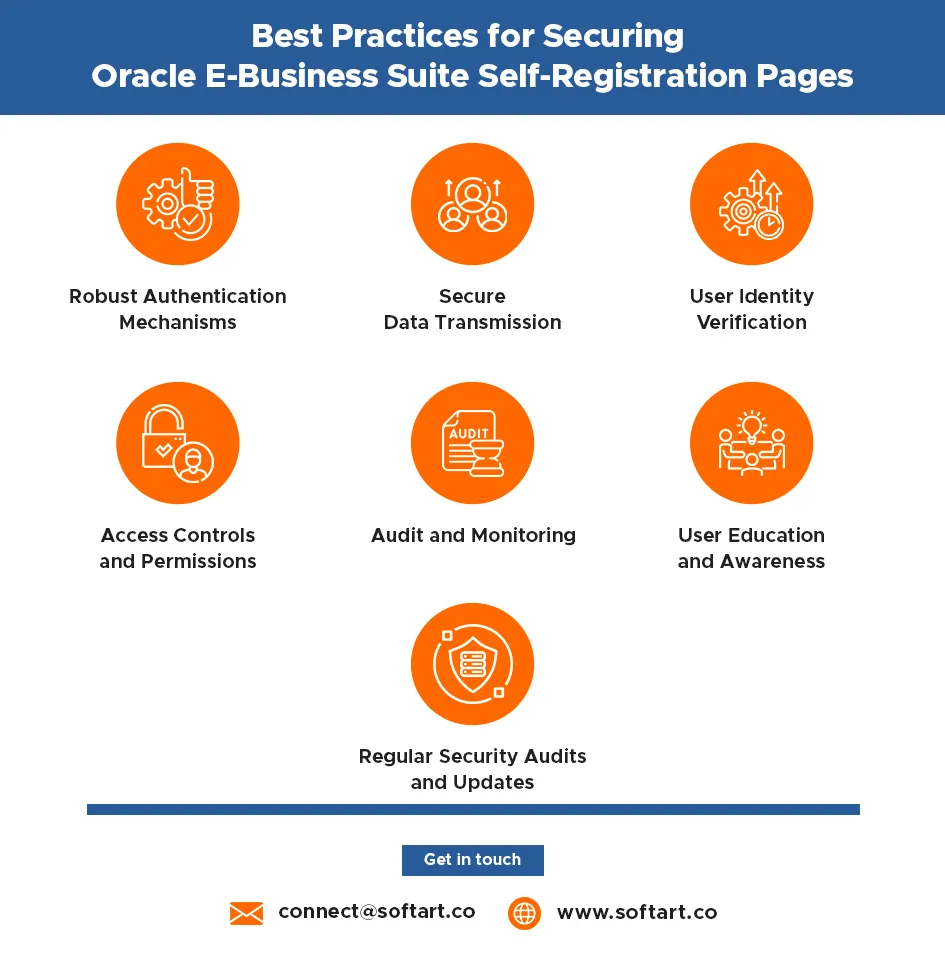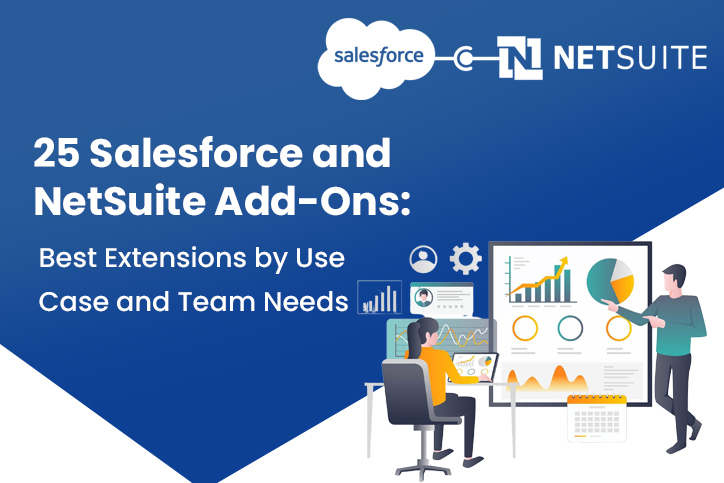In an era where digital transformation is not just an option but a necessity, Oracle E-Business Suite (EBS) emerges as a game-changer for businesses aiming to streamline their operations. This powerful suite of applications offers a comprehensive solution for managing various business processes, from financials and supply chain management to human resources and customer relationship management.
As more companies adopt Oracle EBS in 2024, understanding the implications and security measures related to self-service registration becomes paramount.
In this blog, we will delve into the essential aspects of registration implications and security, explore the risks associated with Oracle EBS, and highlight best practices for securing self-registration pages.
The Need to Know Registration Implications & Security for Oracle EBS
Oracle E-Business Suite (EBS) offers a wide range of modules that cater to various business functions, from financial management to supply chain operations. One of the notable features of Oracle EBS is its self-service registration capabilities, which allow users to register and manage their accounts independently. While this feature offers significant convenience and efficiency, it also introduces several implications and security considerations that businesses must address.
Self-service registration in Oracle EBS empowers users to take control of their account creation and management, reducing the administrative burden on IT departments and streamlining the onboarding process. However, this autonomy also presents potential security risks. Unauthorized access, data breaches, and identity theft are some of the critical threats that can arise if proper security measures are not implemented. Ensuring that self-service registration is both user-friendly and secure is essential to maintaining the integrity of the system and protecting sensitive business data.
To mitigate these risks, businesses need to adopt a comprehensive approach that encompasses both technological and procedural safeguards. This involves implementing robust authentication mechanisms, monitoring registration activities, and educating users about best security practices.
Risks of Oracle EBS
Oracle E-Business Suite, like any powerful business application, comes with its own set of risks that organizations must be vigilant about. These risks can have significant repercussions if not adequately managed, impacting everything from operational efficiency to data security. Here are some of the primary risks associated with Oracle EBS:
Unauthorized Access: Without stringent security measures, unauthorized individuals may gain access to the system, leading to data breaches and potentially compromising sensitive business information.
Data Breaches: With the vast amount of data managed within Oracle EBS, a breach could expose confidential information, resulting in financial losses, legal liabilities, and damage to the organization’s reputation.
Identity Theft: Self-service registration features can be exploited if proper identity verification processes are not in place, leading to identity theft and fraudulent activities.
Compliance Issues: Failure to comply with regulatory requirements and industry standards can result in hefty fines and legal consequences. Ensuring that Oracle EBS implementations adhere to relevant regulations is crucial for avoiding compliance-related risks.
Internal Threats: Insider threats, whether from disgruntled employees or human error, pose a significant risk to the integrity and security of Oracle EBS. Implementing strict access controls and monitoring user activities can help mitigate these risks.
By recognizing these risks, businesses can take proactive steps to secure their Oracle EBS environment and protect their valuable data and operations.
Best Practices for Securing Oracle E-Business Suite Self-Registration Pages
Best Practice Security for Self-Registration Pages
Ensuring the security of self-registration pages in Oracle E-Business Suite is critical for protecting user accounts and sensitive business data. Implementing best practices for security can significantly reduce the risk of unauthorized access and other threats. Here are some detailed strategies to enhance the security of self-registration pages:
Robust Authentication Mechanisms:
- Implement multi-factor authentication (MFA) to add an extra layer of security beyond just usernames and passwords. MFA requires users to provide additional verification, such as a code sent to their mobile device, making it more difficult for unauthorized users to gain access.
- Use strong password policies that require users to create complex passwords, including a mix of upper and lower case letters, numbers, and special characters. Enforce regular password changes and avoid common passwords.
Secure Data Transmission:
- Ensure that all data transmitted during the registration process is encrypted using SSL/TLS protocols. This prevents data from being intercepted and read by unauthorized parties during transmission.
- Use secure APIs and avoid transmitting sensitive information through URLs, which can be easily captured.
User Identity Verification:
- Implement identity verification procedures to confirm the legitimacy of users during the registration process. This can include email verification, CAPTCHA challenges, and phone number validation.
- Monitor and flag suspicious registration activities, such as multiple registration attempts from the same IP address or the use of disposable email addresses.
Access Controls and Permissions:
- Assign appropriate access levels based on user roles and responsibilities. Limit access to sensitive data and functionalities to only those who need it.
- Regularly review and update user permissions to ensure that only active and legitimate users have access to the system.
Audit and Monitoring:
- Implement comprehensive logging and monitoring of registration activities. This includes tracking login attempts, successful and failed registrations, and changes to user accounts.
- Use automated tools to analyze logs and detect unusual patterns or potential security incidents. Set up alerts to notify administrators of suspicious activities in real-time.
User Education and Awareness:
- Educate users about the importance of security and best practices for protecting their accounts. Provide guidelines on creating strong passwords, recognizing phishing attempts, and reporting suspicious activities.
- Regularly update users on new security features and practices, ensuring they remain informed and vigilant.
Regular Security Audits and Updates:
- Conduct regular security audits of the Oracle EBS environment to identify and address vulnerabilities. This includes both internal reviews and third-party assessments.
- Stay updated with the latest security patches and updates from Oracle. Promptly apply these updates to protect against newly discovered vulnerabilities.
- By implementing these best practices, businesses can significantly enhance the security of their self-registration pages in Oracle EBS, ensuring that user accounts and sensitive data are well-protected against potential threats.
Let SoftArt be Your Expert Guide
Navigating the complexities of Oracle E-Business Suite, especially concerning self-service registration and security, requires expertise and a proactive approach. At SoftArt, we specialize in providing comprehensive e-business suite support and consulting services. Our team of experienced Oracle business development consultants is dedicated to helping businesses optimize their Oracle EBS implementations while ensuring robust security measures are in place.
Whether you need assistance with configuring self-service registration, conducting security audits, or implementing best practices, SoftArt is your trusted partner. Contact us today to learn more about how we can help you secure your Oracle EBS environment and achieve your business goals.









